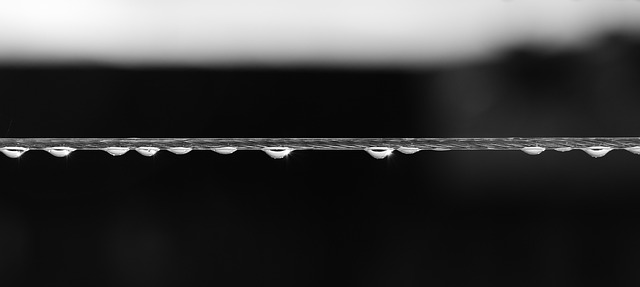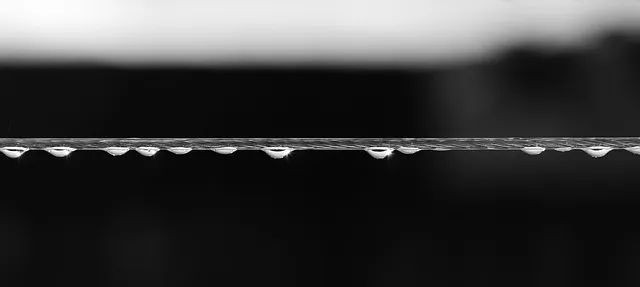What’s the Connection Between Dryer Size and Energy Efficiency?
Let’s break it down. A larger dryer can handle bigger loads, which is great if you’re washing for a family of five. But if you’re only drying a small batch of clothes, a large dryer can be like using a sledgehammer to drive a nail. It might take more energy to heat up the extra space and get those smaller loads dry. Essentially, you’re wasting energy on unneeded capacity.
On the flip side, a smaller dryer used for large loads can be inefficient too. It might struggle to dry everything evenly, leading to longer drying times and increased energy use. It’s like trying to fit a king-sized quilt into a tiny closet—it’s just not a good fit.
So, how do you find the right balance? It’s all about matching the dryer size to your household’s needs. If you frequently dry large loads, investing in a larger, energy-efficient dryer makes sense. Look for models with high efficiency ratings and features like moisture sensors, which stop the cycle when clothes are dry, preventing unnecessary energy use.
In essence, choosing the right size dryer and understanding its efficiency can make a real difference on your energy bill. It’s all about finding that sweet spot where you get the most out of your dryer without overloading it or using more energy than necessary.
Size Matters: How Dryer Dimensions Influence Energy Efficiency

First off, a dryer that’s too large for your needs can end up wasting a lot of energy. Think of it like trying to warm up a giant room with a small heater. It’s not going to do the job efficiently, and your energy bill will skyrocket. A dryer with excess capacity uses more power than necessary to dry your clothes, leading to increased energy consumption and higher costs.
On the flip side, a dryer that’s too small might seem like a good way to save energy, but it can actually be less efficient. If you’re cramming in too many clothes, the dryer has to work harder to get everything dry, which can waste energy and put extra strain on the appliance. It’s a bit like trying to squeeze a week’s worth of groceries into a tiny fridge—things don’t stay fresh as long and you end up using more energy.
The magic lies in choosing the right size dryer for your household’s needs. Look for models that match your laundry load—one that’s efficient without being overkill. Modern dryers often come with energy-saving features and sensors that adjust the drying time based on the load size. These smart touches can help you get the best bang for your buck while keeping your energy usage in check.
So, next time you’re in the market for a dryer, remember: the right size isn’t just about fitting your clothes; it’s about fitting your energy-saving goals.
Big vs. Small: Finding the Most Energy-Efficient Dryer for Your Home
First off, bigger dryers are designed to handle larger loads, which means you might run fewer cycles. Fewer cycles can translate to energy savings if you’re washing large amounts of laundry frequently. But hold on—larger dryers often consume more power per cycle, so if you’re not dealing with bulky loads regularly, you might end up wasting more energy.
On the other hand, small dryers shine when it comes to efficiency in handling lighter loads. They usually consume less power per cycle and can be ideal for small households or individuals with modest laundry needs. The key here is that they’re designed to do just enough work without overdoing it.
To make a smart choice, consider your laundry habits. Are you washing for a large family or just yourself? Do you need a dryer that can handle frequent heavy loads, or do you prefer a more energy-efficient model that’s gentle on your electricity bill? Checking the dryer’s energy rating can provide insight into its efficiency. Models with higher energy star ratings tend to be more efficient, regardless of their size.
Ultimately, the right choice depends on balancing your household’s laundry demands with the dryer’s energy consumption. It’s all about finding that sweet spot where efficiency meets practicality.
Is a Larger Dryer Always Greener? Unpacking the Energy Efficiency Debate
Imagine a large dryer as a powerful giant, ready to tackle huge loads of laundry in one go. It sounds efficient, right? However, bigger machines often come with higher energy consumption, particularly if they’re not used to their full capacity. If you’re running smaller loads frequently, that giant dryer might end up using more energy than a smaller, more efficient model.
Think of it like this: a big dryer is like a large car that’s built to transport a whole family. If you’re only using it to drive around town solo, it might not be the most fuel-efficient choice. The same principle applies to dryers. If your household laundry is manageable in a smaller dryer, opting for a larger model could mean wasted energy and increased utility bills.
On the flip side, modern large dryers are designed with advanced technologies that can be surprisingly efficient. They come with features like moisture sensors and energy-saving modes that adjust the drying time based on the load size. These smart features can help mitigate some of the energy concerns associated with larger dryers.
So, what’s the real deal? It boils down to how you use the appliance. A larger dryer isn’t automatically greener; it’s the thoughtful use of its features and load capacity that determines its energy efficiency. If you often find yourself with piles of laundry, a larger dryer might be a worthwhile investment, especially if it comes with eco-friendly features. But if your loads are generally small, sticking with a compact, energy-efficient model might be the better choice for both your wallet and the planet.
Energy Efficiency and Dryer Size: What You Need to Know Before Buying
First off, let’s chat about size. Bigger isn’t always better. If you’ve got a large family and do tons of laundry, a larger dryer with a bigger drum will save you time and reduce the number of loads you need to run. It’s like having a spacious trunk in your car—more room means fewer trips to the laundromat. However, if you live alone or with a partner, a smaller dryer might be all you need. It’s not just about fitting your laundry; it’s about fitting your lifestyle.
Now, let’s get into energy efficiency. Imagine running a marathon and being handed a water bottle versus a bucket; you’d obviously want the smaller one to stay hydrated without wasting resources. Similarly, energy-efficient dryers use less electricity, which translates to lower utility bills and a smaller carbon footprint. Look for models with Energy Star ratings—these are like the gold stars of the appliance world, ensuring that you’re getting a product that won’t drain your wallet or the environment.
But there’s more to energy efficiency than just ratings. Some dryers come with features like moisture sensors that automatically adjust drying time, preventing overuse of energy. It’s like having a smart coach who knows just how much water you need to stay hydrated without overloading you.
Balancing dryer size with energy efficiency might seem tricky, but think of it as finding the perfect dance partner—one that complements your needs and moves just right.
The Surprising Link Between Dryer Capacity and Your Energy Bill
Picture your dryer as a giant, hungry beast. The larger the drum, the more it eats up electricity. Why? Because a bigger drum means more air to heat and more space to dry those clothes. If your dryer has a high capacity, it’s akin to trying to cook a giant pot of soup on a tiny stove—you’re using a lot more energy to get everything hot and cooked evenly.
Now, you might think, “But isn’t a bigger dryer better because I can do more laundry at once?” True, you can tackle more laundry in one go, but here’s the twist: If you don’t fill that big drum to its optimal capacity, you’re running the dryer with a lot of empty space. That empty space isn’t just a waste of space; it means your dryer is working harder than it needs to, and that extra work translates directly into higher energy consumption.
Imagine this: if your dryer is the equivalent of a huge hotel room with only one guest, it’s going to use a lot of energy to keep that room comfortable. Conversely, if it’s filled with guests, the energy spent is more efficient. So, if you have a large-capacity dryer but usually only dry a small load, you might be better off with a smaller model or making sure you fill it properly each time.
Understanding this link between dryer capacity and your energy bill can help you make smarter choices, both for your wallet and for the environment. It’s all about balancing the size of your dryer with how often and how much you use it.
How Choosing the Right Dryer Size Can Slash Your Energy Costs
First off, let’s talk about efficiency. If you’re using a dryer that’s too large for your needs, you’re essentially wasting energy. Imagine running a marathon on a treadmill set to a high speed when you’re only walking—you’re using more energy than necessary. A dryer that’s too big will use excess energy to heat up the extra space, even if you’re only drying a small load. On the flip side, a dryer that’s too small can overwork itself trying to fit in more clothes, which can lead to higher energy consumption and more wear and tear.
Now, consider the benefits of finding that sweet spot with a dryer size that matches your household’s needs. When your dryer is appropriately sized, it works more efficiently, drying clothes quicker and using less energy. It’s like having a perfectly fitted suit—everything just works better and feels more comfortable.
Also, modern dryers often come with features that adjust energy use based on load size and fabric type. But no matter how smart your dryer is, if it’s not the right size for you, those features can’t work their magic effectively.

In essence, choosing the right dryer size is a simple yet impactful way to trim your energy costs. It’s about making sure your appliance is in harmony with your lifestyle, so you save money and keep your laundry routine smooth and efficient.
Does Bigger Really Mean Better? Exploring Dryer Size and Energy Use
Imagine your dryer as a big, hungry beast. A larger dryer can handle bigger loads, which might seem like a dream come true, especially if you’re constantly juggling mountains of laundry. However, bigger machines come with a hefty appetite for energy. Just like a giant SUV guzzles more fuel than a compact car, a larger dryer will typically use more electricity. So, if you’re not regularly washing bulky items, that oversized appliance might be overkill.
On the flip side, a larger dryer often means more advanced technology designed to handle larger loads more efficiently. This can lead to better drying performance and potentially lower energy use per load compared to smaller models. Think of it like having a high-performance sports car—while it may cost more to maintain, it often gets you where you need to go more efficiently.
However, size isn’t everything. Energy efficiency ratings are crucial. A well-rated, smaller dryer could outperform a larger one in terms of energy use. When shopping around, keep an eye out for models with high-efficiency ratings or features like moisture sensors. These smart features can help you avoid over-drying, which not only saves energy but also extends the life of your clothes.
Ultimately, whether a bigger dryer is better depends on your specific needs and how much you value energy efficiency. Size can offer convenience, but don’t forget to balance it with the cost of running the beast.

